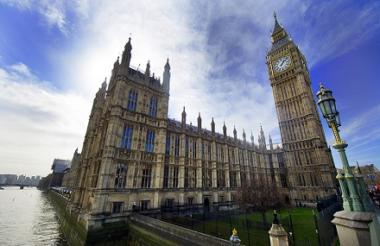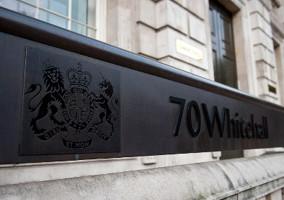Today marks the 10th anniversary of the passage of the Social Value Act (SVA), a small but transformative piece of legislation that mandated public bodies to consider how they can improve social, economic, and environmental wellbeing through their public spending. Since then, devolution, levelling up, and place-based value creation has added to the momentum.
Shaw Trust has been guided by the principle of social value since being founded in 1982, but the SVA was a turning point towards a more holistic understanding of how we should spend public money that went beyond the third sector to the heart of government. It is now seen as common sense that public services spend is shaped to maximise the value of that money for the taxpayer.
Colleagues at Social Enterprise UK have estimated that social value now influences £100bn of public spending, up from just £25bn in 2017. This is an achievement worth celebrating but is not sufficient when compared to the nearly £300bn of public expenditure on services.
Practice still lags behind the aspirations
The Social Value Act has shifted the rhetoric and the culture of those in government, but practice still lags behind the aspirations of the legislation, with clunky interpretation, implementation, and scoring of social value being too much of a tick box exercise as opposed to forcing a maximal benefit. In my opinion, the challenge facing social value is two-fold.
First, we are not thinking expansively enough about social value. The SVA rightly focuses on the additional social value that can be created through commissioning public services, but we now need to look at the fundamental value created by different models of public service delivery. Shaw Trust is an example of this. We reinvest any surplus generated back into creating capacity, improving services, and supporting communities.
We also use our surplus to incubate charities and social enterprises that we think have great potential to further improve our society. This reinvestment rather than value extraction is core to social value creation. Unfortunately, legislation which was meant to guide thinking about the added value generated through smarter commissioning has been taken too literally. This is why you can ‘score’ social value points for essentially following the law in preventing modern slavery, but you cannot score for reinvesting your money back into making our country a better place to live, and your score is only evaluated for the specific contract being considered, not your wider impact.
Social value should now be a call to action to look at the structure of how we commission and deliver public services as a natural evolution from the SVA if we are to extract its true potential for society and the taxpayer.
Measuring social value
Related to this first challenge is the measurement of social value. The Cabinet Office and Department for Digital, Culture, Media and Sport deserve credit for their development of a coordinated Social Value Model and their Outsourcing Playbook, which have given a strong direction to the whole public sector.
However, although the themes and outcomes that have been articulated are all worthy, it is not credible for one document to articulate all the ways that social value can be created. We need to trust (all) organisations who have the expertise and knowledge to develop the ideas to generate social value and be more flexible and rigorous in measuring social value and comparing the different approaches of different organisations.
This will take time, but we need to move to a system whereby social enterprises, charities and stakeholder-capitalist businesses can compete on the basis of the total value they create per taxpayer pound, rather than focusing on a narrow set of short-term by contract criteria.
New ten-year initiative to maximise adoption and tackle barriers
Shaw Trust is committed to social value; it is at the core of what we do. It is for that reason that we are supporting a new initiative, Social Value 2032, created by Social Enterprise UK and led by Professor Chris White. He is familiar to everyone involved with social value as the Member of Parliament who drafted the SVA and got it through Parliament. Social Enterprise UK were pivotal to creating the SVA then and is equally committed to its evolution.
Shaw Trust together with our partners Suez, PwC, and Siemens, aims to explore how we can maximise the adoption of social value and tackle the barriers that prevent us from getting the most out of public spending and increasingly businesses’ ambition to be invest in and help create and scale the social value economy for all stakeholders. White wants to lay out a new vision for social value and to address the barriers holding back total adoption of social value in the public and private sectors. It’s a bold ambition and critical to achieve and one that Shaw Trust fully supports.
Our aspiration is that by 2032 we can look back at the twenty years since the SVA was passed as marking a sea change in the way that we commission public services, procure goods and services, and develop sustainable supply chains, all to maximise the social value created for all in our society. I believe that Shaw Trust has to take responsibility and leadership in achieving this vision. I hope that every charity and social enterprise will join us in this initiative and help us take social value to the next level.
Chris Luck is chief executive of Shaw Trust
Related articles













